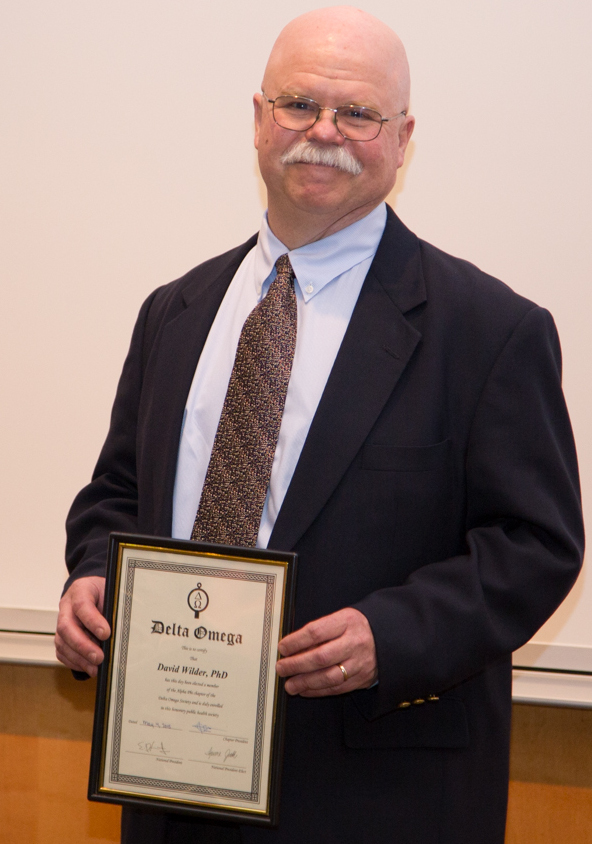David Wilder, professor of biomedical engineering, was inducted as an Honorary Member of the Delta Omega Honorary Society in Public Health at the May 4 UI College of Public Health

Delta Omega defines an Honorary Member as: “Honorary membership is conferred only upon persons possessing exceptional qualifications, who have attained meritorious national or international distinction in the field of public health.”
Each chapter may induct only one member per year. Prior Honorary Member inductees include former U.S. Senator Tom Harkin and the late President Herbert Hoover.
Wilder was introduced to ergonomics by his grandfather and inventor of the overhead door, Henry Clark, who urged him to consider the person doing a job when designing a workplace. By doing so, one can reduce and preferably avoid the incidence of work-related musculoskeletal disorders and the associated personal and national costs. Wilder emphasizes the importance of treating, not only the patient, but also the workplace/physical environment in order to prevent recurrence of the problem.
“I would like to put orthopaedic surgeons and neurosurgeons out of a job by eliminating the reasons for treatment of these disorders. Just think of the misery avoided and the resources that would be saved," Wilder said.
Wilder holds a secondary appointment in the Occupational and Environmental Health Department and has made many contributions to the University of Iowa, College of Public Health. He served as core faculty of the Ergonomics Training Program within the NIOSH-funded Heartland Center for Occupational Health and Safety since the program’s inception in 2001. His annual course, “Ergonomics of Occupational Injuries,” is among the Ergonomics Training Program’s core courses. Wilder regularly serves on thesis or dissertation committees for trainees of the Heartland Center’s Ergonomics Training Program. He lectures each year in in the Occupational and Environmental Health Department course “Occupational Ergonomics I,” providing non engineers enrolled in the class with an elegant and entertaining model of spine biomechanics and its relationship with low back pain, which is historically among the most common health complaint of working people. And he was instrumental in the design and implementation of the new Biomedical Engineering/Industrial Hygiene 3+2 degree program.